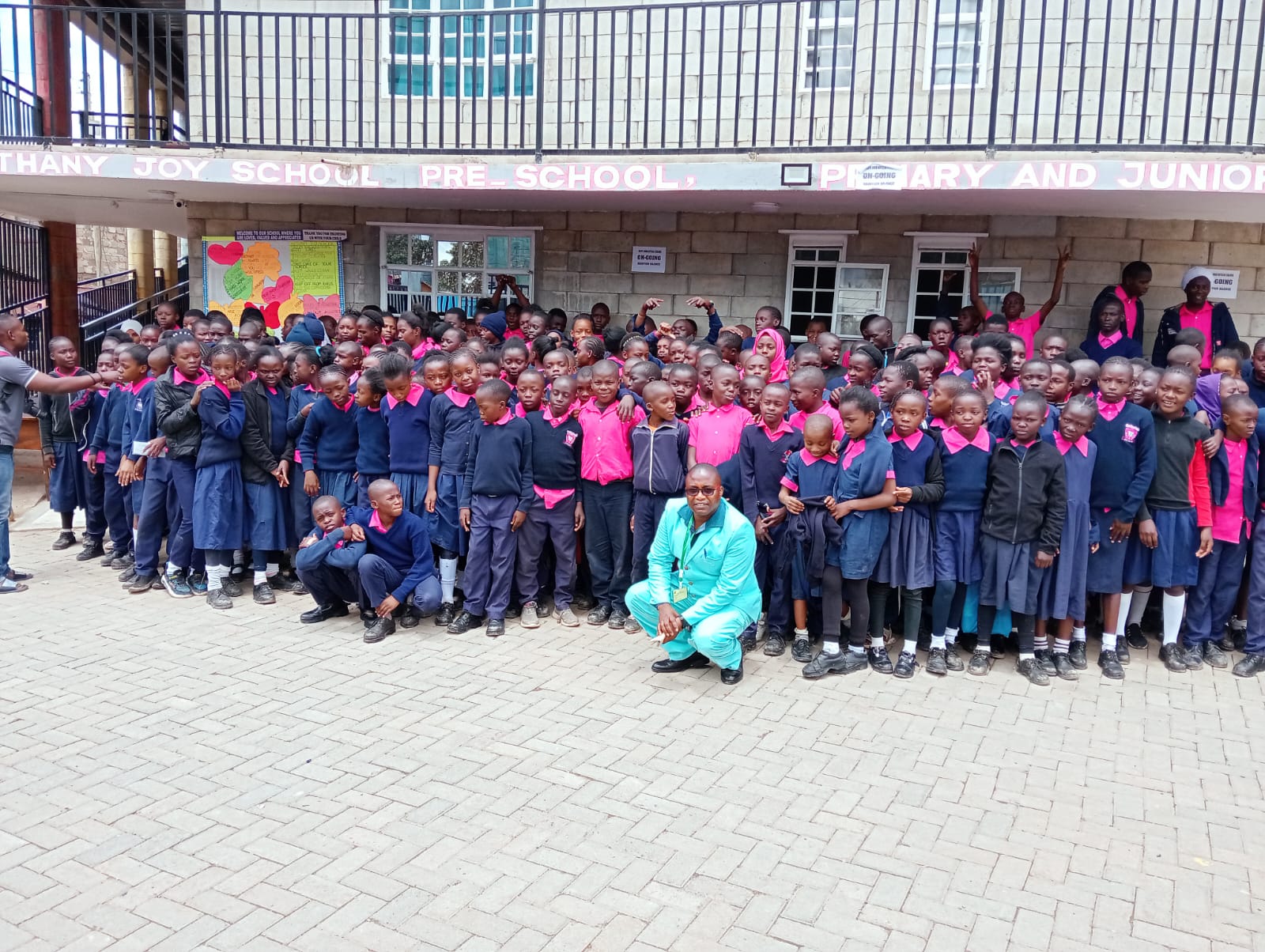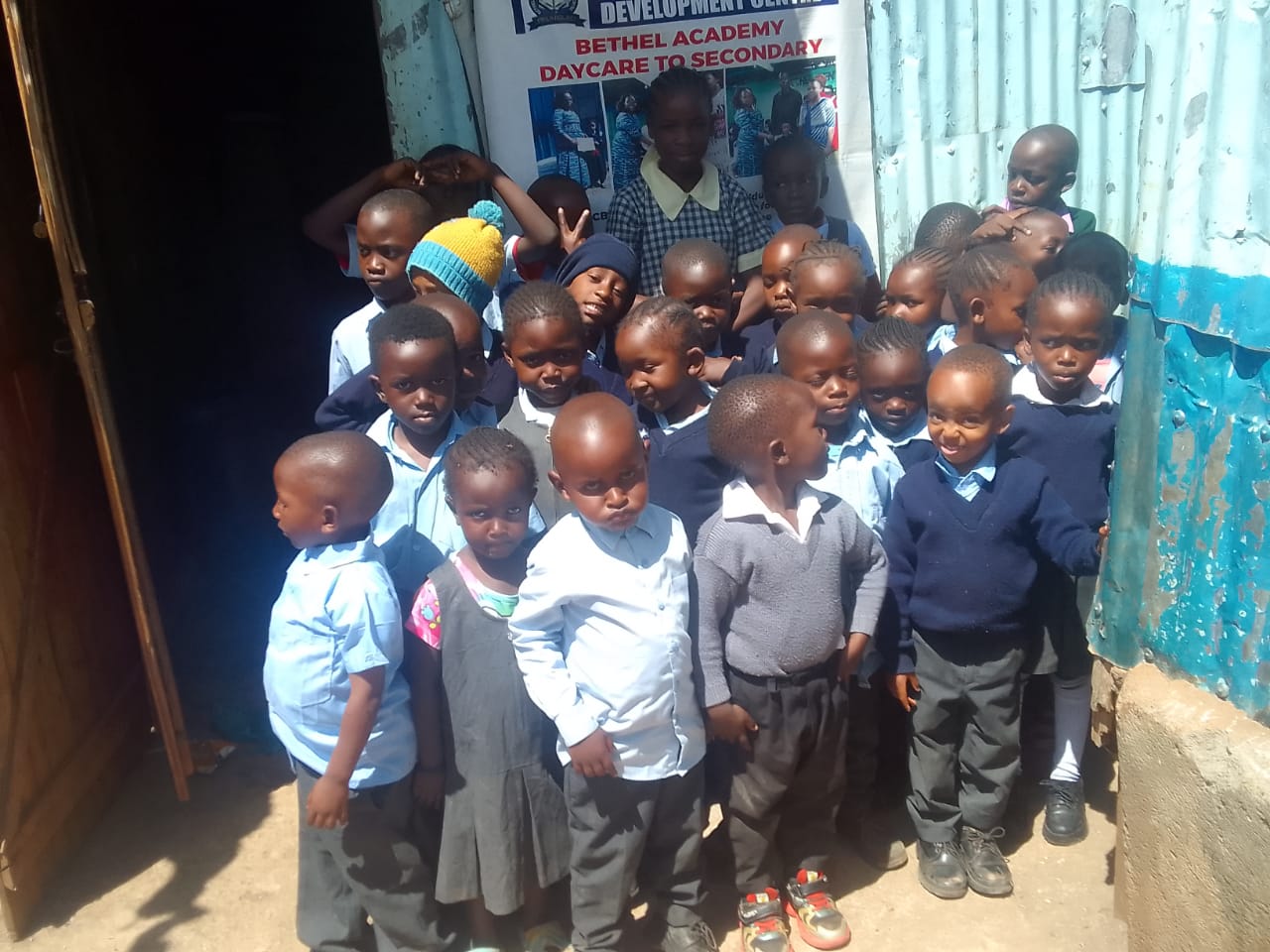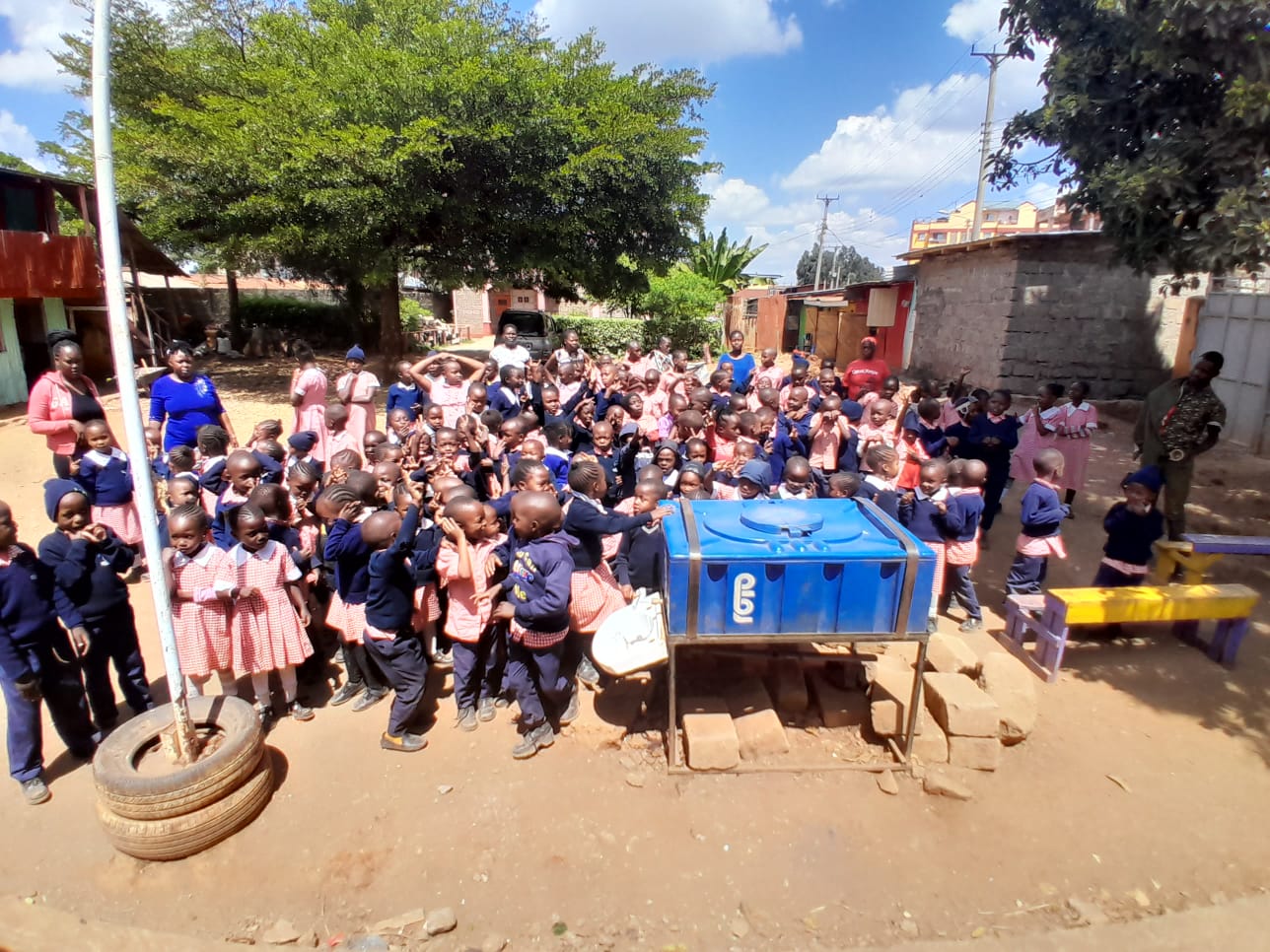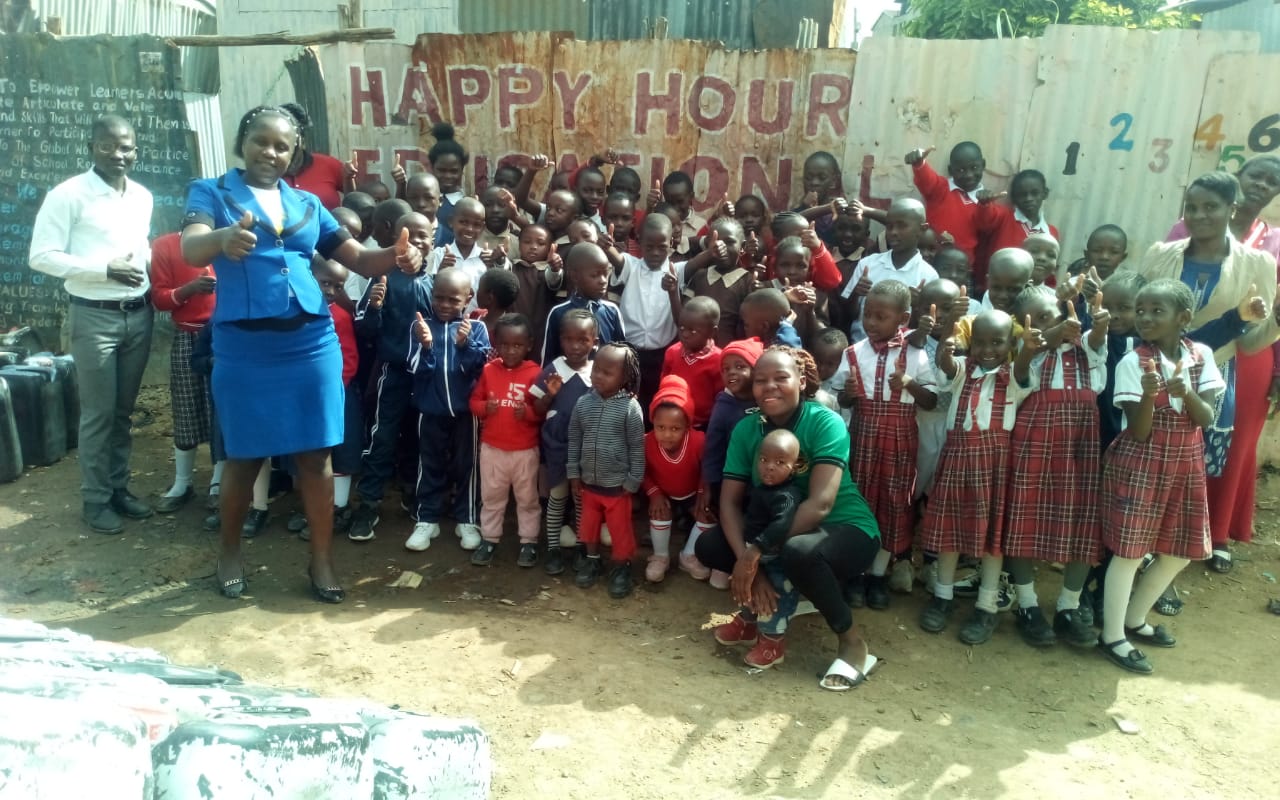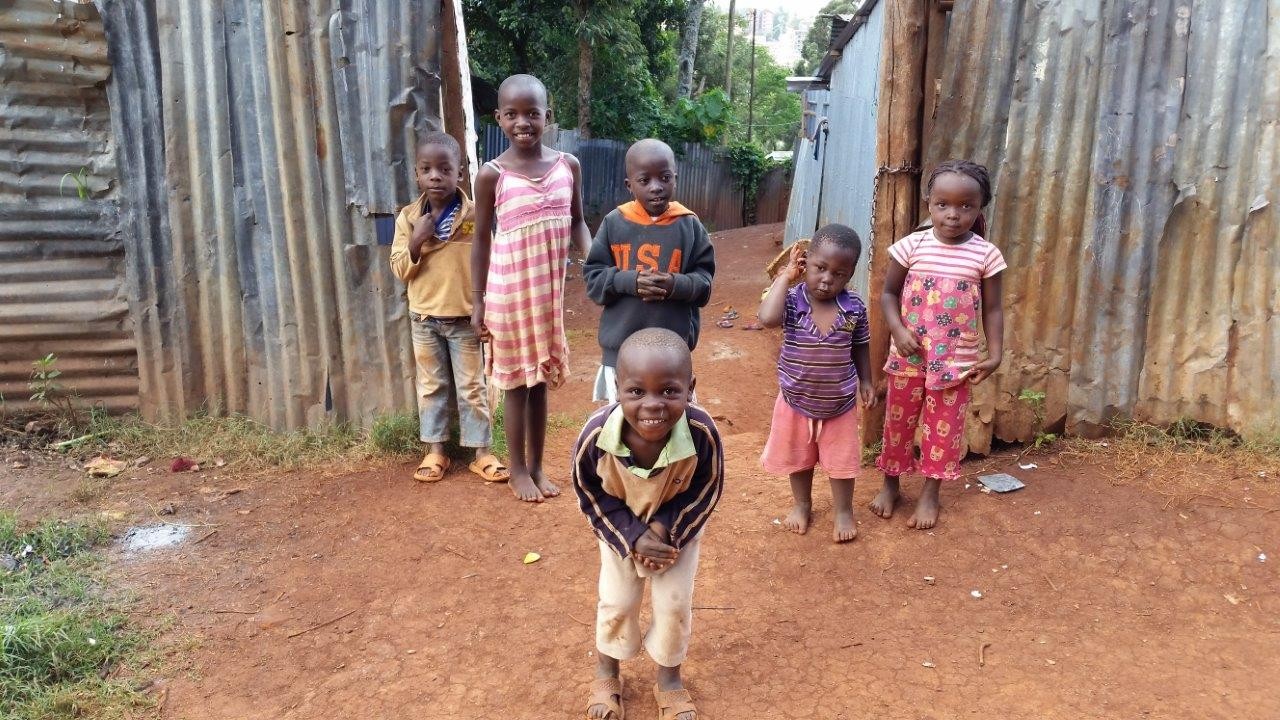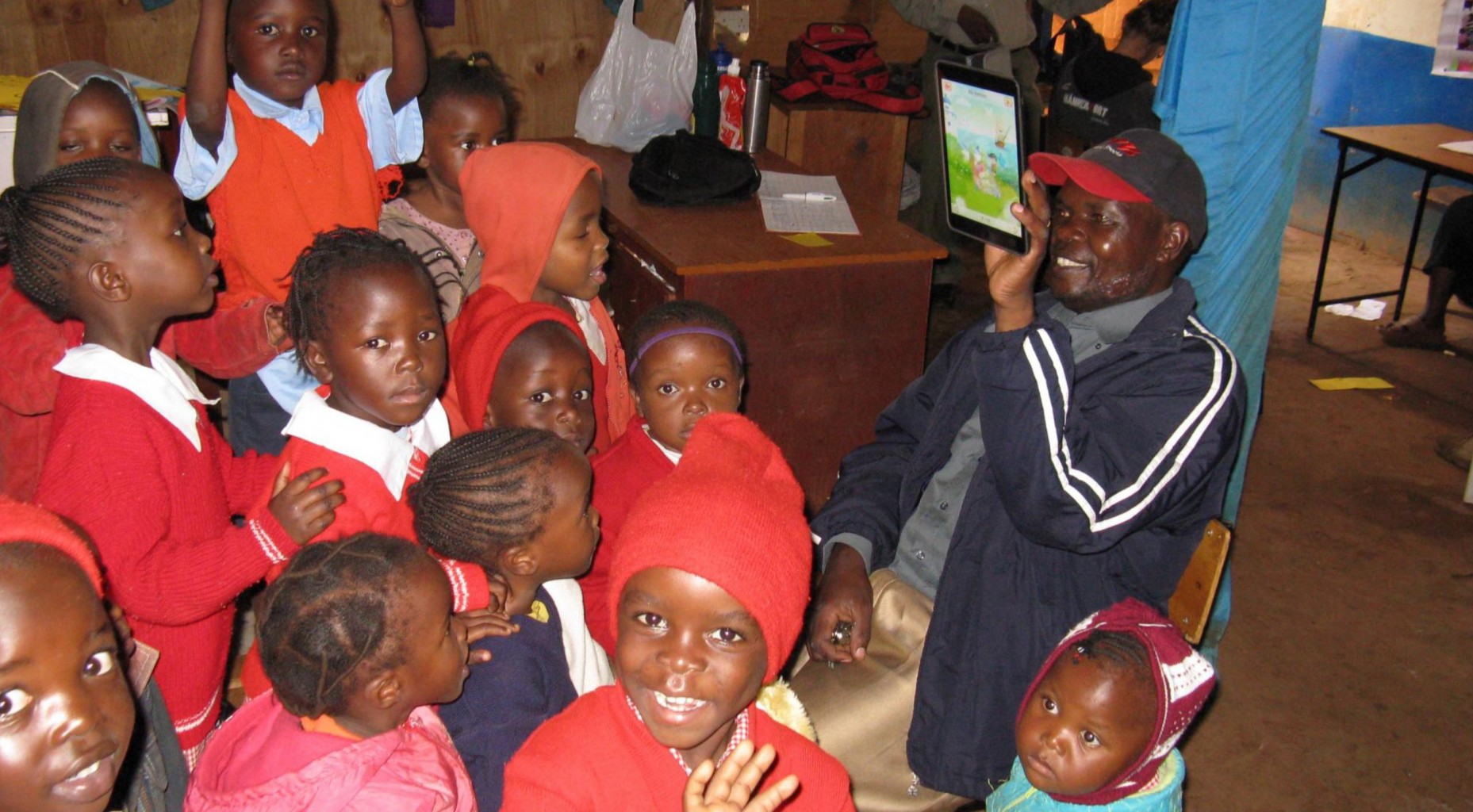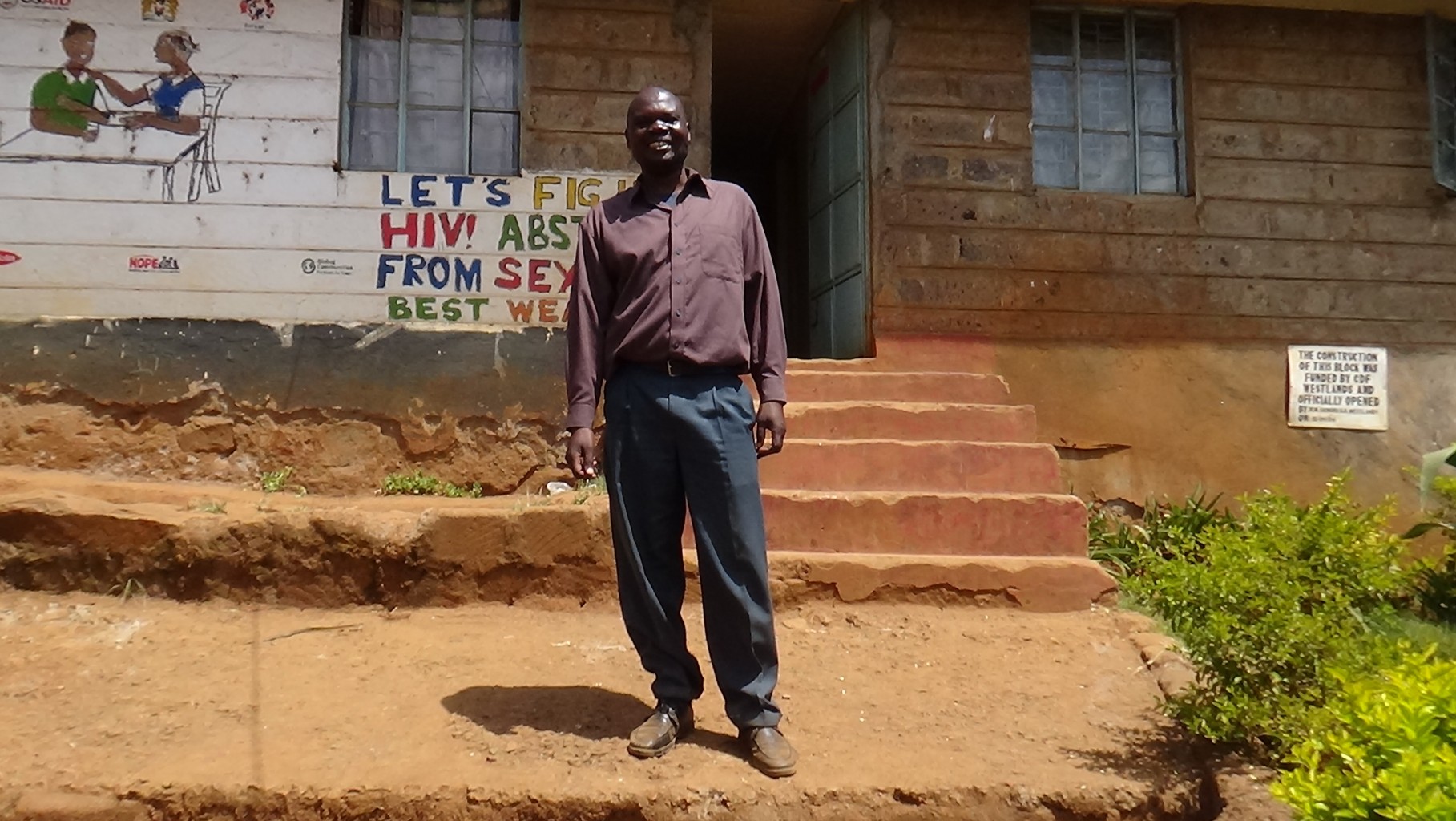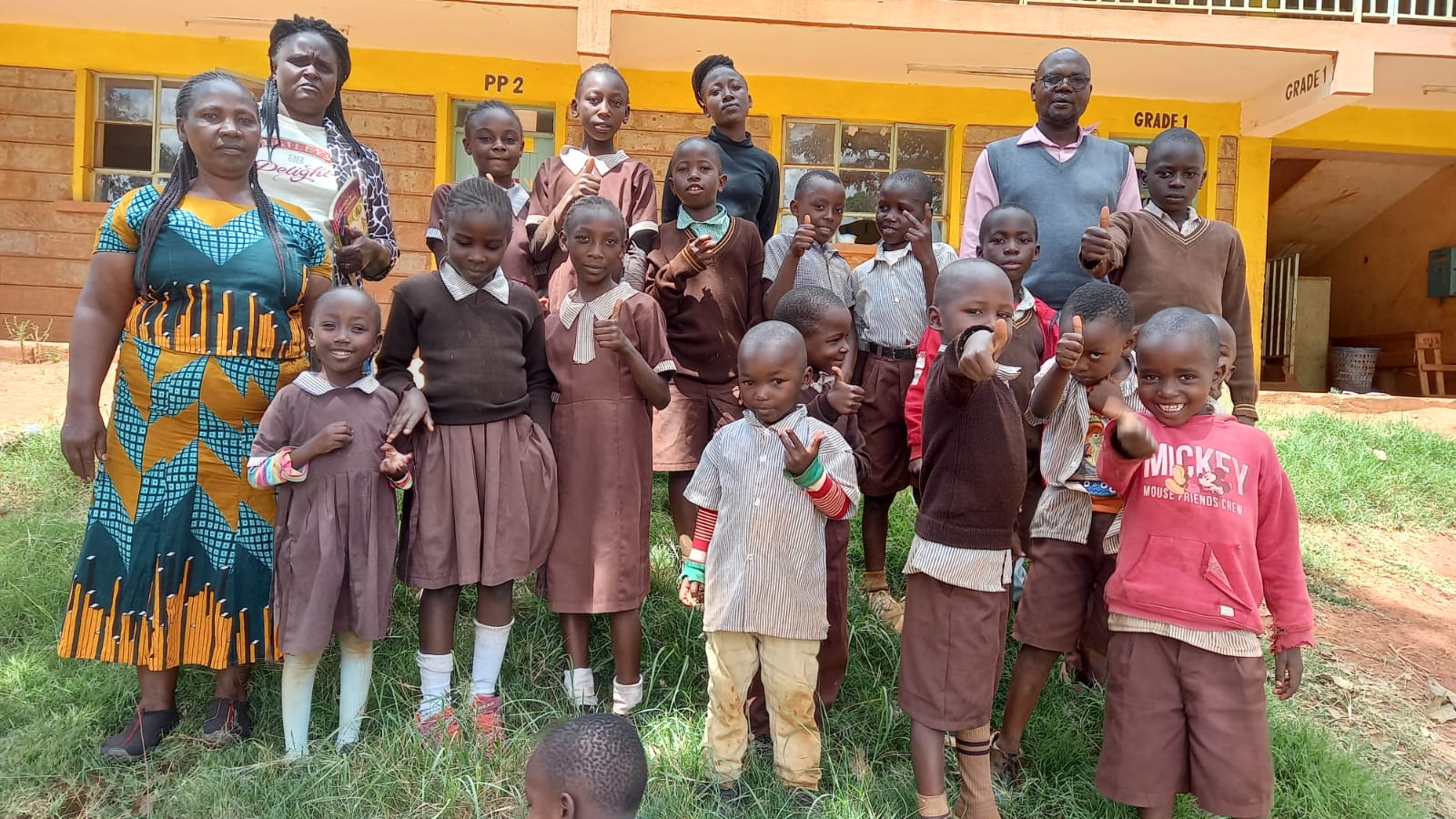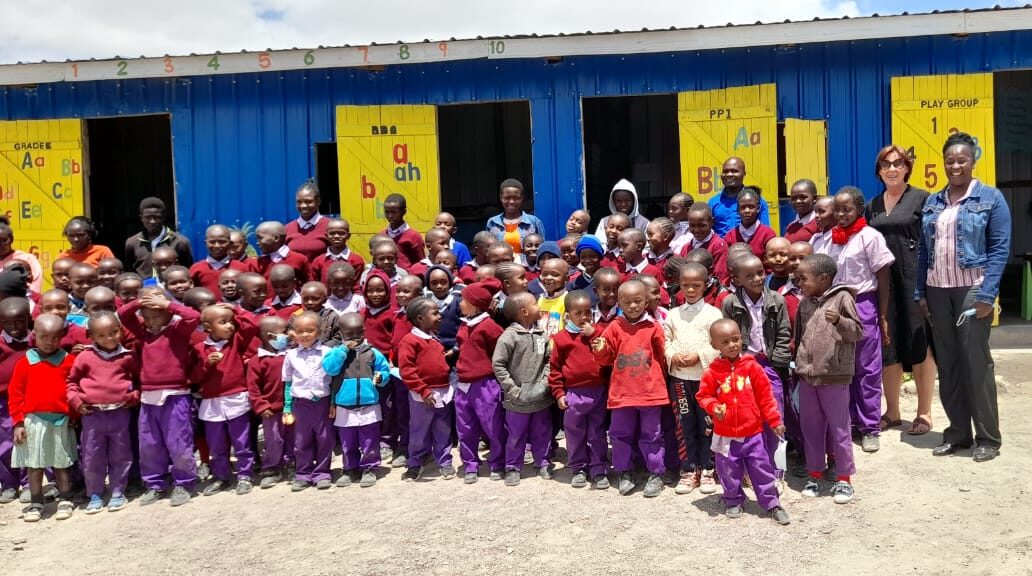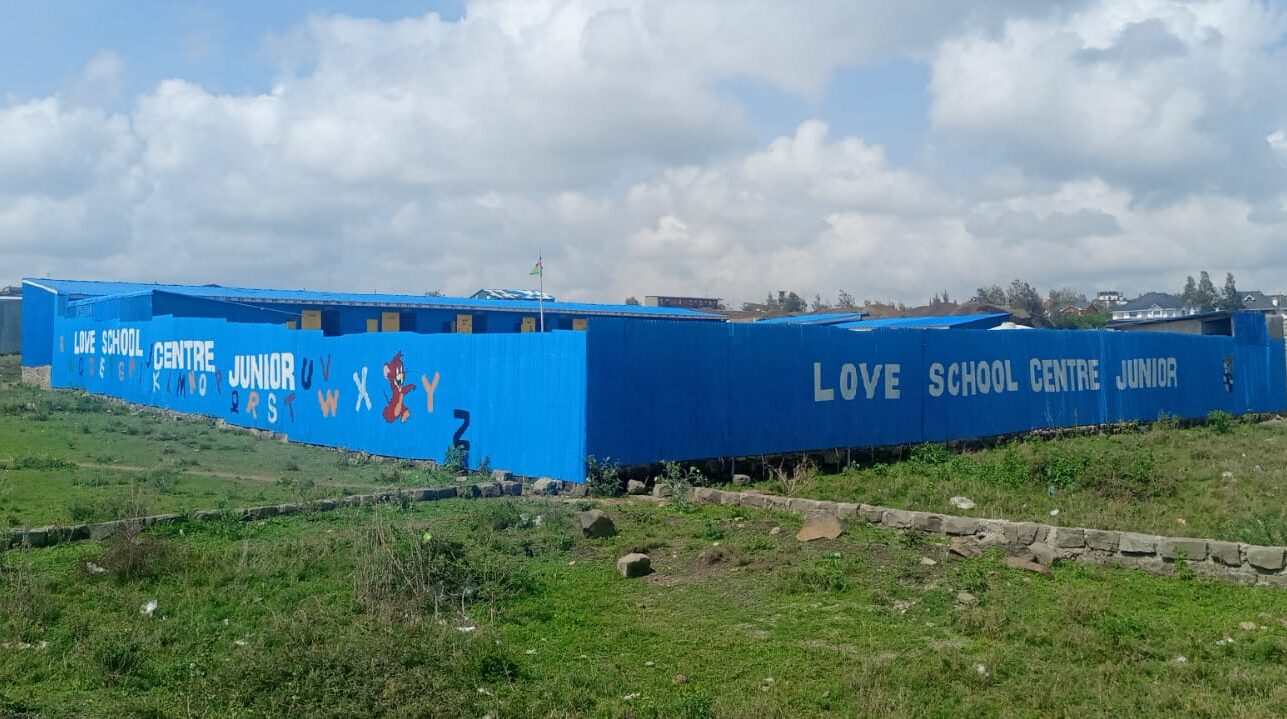Helping people to help themselves in Nairobi, Kenya
80 % of Nairobi’s population, i.e. more than 3 million, live on only 5 % of the living space in informal settlements, crowded into small corrugated iron huts, without water supply or sanitary facilities and often surrounded by garbage. In the neighboring settlements of Kangemi and Kawangware, there are about 6 state schools for 80,000 children and about 90 community schools as private initiatives of the residents.
School fees paid by parents are barely enough to cover the teachers’ meager salaries of €1 a day, apart from the vacation months when there is no income. School desks and adequate sanitary facilities are lacking, the rooms are small, cramped, dark and often several classes are taught in parallel.
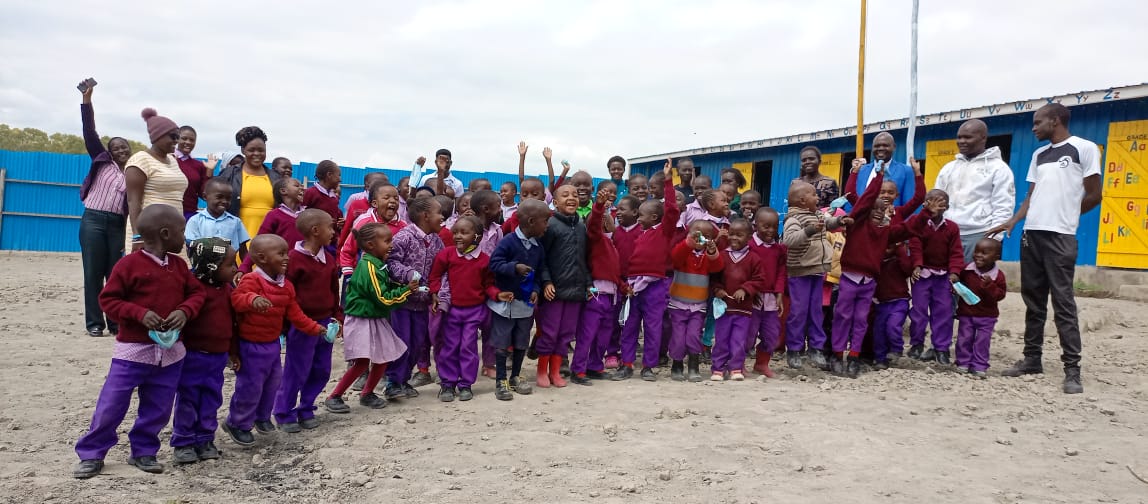
In 2005 Irmgard Wutte visited one of these schools, the Kangemi Youth School, and was shocked by the completely traumatized people. She followed the urgent request of all teachers not to forget them. Over 7 years she visited the school with friends and the initial shyness and submissiveness gradually gave way to a cheerful – trusting bond.
In 2012, a school partnership then began with the first nyendo school in Prien am Chiemsee, Bavaria. Since then, a total of 12 schools in Germany and Austria and 14 community schools in Kangemi/Kawangware have participated in the partnership that learns with and from each other across the divided worlds.
Our path led us through different phases with diverse projects to reduce hardship and enable intercultural encounters and activities. We have indeed succeeded in both with flying colors and have energetically and passionately broken down the ghettoization of our friends.
However, helping people to help themselves remains a great challenge. The trauma of helplessness is deeply ingrained, and we are too quickly tempted by pity, shame and guilt to intervene and create a remedy where self-empowerment would be the only solution. But what options are there?
In 2020, we finally found a local partner, NairoBits, with whom we could actually support a sustainable offering for disadvantaged young people by setting up a new IT center. 70% of the graduates find jobs.
With our approach we can imagine to find partners all over the world with whom we create a small piece of fair and peaceful world.
Insight into our network of partner schools
Bethany Joy school
| Steckbrief | |
|---|---|
| School name | BETHANY JOY SCHOOL |
| Headmaster/Headmistress | Olando Walter |
| Number of students (approx.) | 800 |
| Year founded | 2012 |
| What makes the school special (2-3 sentences) | Educating the less fortunate and vulnerable in Kawangware and its environs. |
| Quote about cooperation with nyendo.lernen | We are ready to collaborate with nyendo and carry out any duties that they will assign to us. |
| Biggest challenges (optional) | Our biggest challenge is that only 40% of parents are capable of paying fees. |
Bethel coommunity developmet centre
| Steckbrief | |
|---|---|
| School name | BETHEL COOMMUNITY DEVELOPMET CENTRE |
| Headmaster/Headmistress | Immaculate Lumasayi Chimwani |
| Number of students | 80 |
| Year founded | 2007 |
| What makes the school special | Bethel community development center champions for the right to education to the orphaned and vulnerable children in the community. |
| Quote about cooperation with nyendo.lernen | Due to the support received from nyendo, we have seen the population of our students increasing and their lives improving. |
| Biggest challenges | Due to harsh economic times and the increase in the students’ population, it is becoming difficult to feed all the students. It is difficult to raise the required rent as we need to pay 3 years rent as indicated on the lease, this makes it unaffordable for expansion. Some children lack the necessities like stationeries, uniform and desks. |
| Greatest successes with nyendo | Nyendo has built a toilet for the school. |
Evemon Education Centre
| Steckbrief | |
|---|---|
| School name | EVEMON EDUCATION CENTRE |
| Headmaster/Headmistress | Everlyn Omuse |
| Number of students | 140 |
| Year founded | 2009 |
| What makes the school special | Our school is special because the goal we have is to make a difference in the community and in ourselves to be something better. |
| Quote about cooperation with nyendo.lernen | Since 2016 our cooperation with nyendo has been great. |
| Biggest challenges | Our biggest challenge is the school land and teachers salary. |
| Greatest successes with nyendo | The greatest success with nyendo is provision of electricity in the school. |
Happy hour education center
| Steckbrief | |
|---|---|
| School name | HAPPY HOUR EDUCATION CENTER |
| Headmaster/Headmistress | Pamela Matilani |
| Number of students | 174 |
| Year founded | 2014 |
| What makes the school special | The school aimed at catering to slum children who were unable to attend school due to financial constraints. |
| Quote about cooperation with nyendo.lernen | Has improved on absenteeism cases after setting matters on stationaries uniform. Given us stability and reduced the pressure. |
| Biggest challenges | Feeding the children and unable to develop the school. |
| Greatest successes with nyendo | 1. Enrolled more learners due to enough space nyendo created for us. 2. Improved on hygiene after adding us a toilet |
| Website / Social Media | Facebook / WhatsApp |
Kangemi Youth centre
| Steckbrief | |
|---|---|
| School name | KANGEMI YOUTH CENTRE |
| Headmaster/Headmistress | Joseph B. Simiyu |
| Number of students | 98 |
| Year founded | 1980 |
| What makes the school special | The school caters for students who come from poor families. These students cannot meet the admission requirements in Government schools. Their parents are able to pay a little fee per month for their learning. |
| Quote about cooperation with nyendo.lernen | The co-operation with nyendo is good and for many years. |
| Biggest challenges | The school is losing so many students because of the fact that parents are not able to cover even small fees because of lack of funds. |
| Greatest successes with nyendo | nyendo built part of school fence and financed the Nairobits IT Training Center in our school, enabled our wifi connection, provided dance classes, paid for teachers salaries, for a permaculture school garden and more. Nyendo invited me to Germany several times. |
Love school center
| Steckbrief | |
|---|---|
| School name | LOVE SCHOOL CENTER |
| Headmaster/Headmistress | Veronica Nduku |
| Number of students | 257 |
| Year founded | 2010 |
| What makes the school special | The school’s aim is to assist street and vulnerable children to achieve education. |
| Quote about cooperation with nyendo.lernen | We are grateful to nyendo for helping us construct and renovate some of the buildings. |
| Biggest challenges | We don’t have a feeding program, this means that some students will stay hungry. Not so many parents are able to pay fees, which makes it difficult for us to pay the rent. There is high teacher turnover due to low salaries. |
| Greatest successes with nyendo | Nyendo has been helpful to us by paying teachers salariese, making rental payments, constructing and renovating buildings after a fire brunt most of them down. |
St. Christopher Pitcher Academy
| Steckbrief | |
|---|---|
| School name | ST. CHRISTOPHER PITCHER ACADEMY |
| Headmaster/Headmistress | Emmah Ito |
| Number of students | 151 |
| Year founded | 2020 |
| What makes the school special | The institution is outside Nairobi in Masailand where there was no school before and it caters also for masai kids. The institution caters to the needs of both the needy and the less fortunate. The institution teaches learners to become self-sufficient through bead work, soap making and basket weaving. |
| Quote about cooperation with nyendo.lernen | Since Nyendo.lernen came into our schools to partner with us our learners have enough water to drink due to the donation of water tanks by Nyendo. |
| Biggest challenges | The biggest challenge is the smaller number of learners who pay for school fees, hence making hard to pay teachers and run the school normally. |
| Greatest successes with nyendo | The greatest success is the school has enough water for both the learners, teachers and the community |
The journey is the reward
Projects that relieve hardship are numerous, but finding or initiating projects that support self-initiative, entrepreneurship, and self-empowerment is extremely difficult. KDI, Kuonquue Design Initiative, in the informal settlement Kibera is a unique shining example. In Kangemi and Kawangware, we try to involve local partners like NairoBits or Start Somewhere.
There is one thing that is certain: our heartfelt interest and tireless efforts are healing the imbalance caused by exploitative interests.

